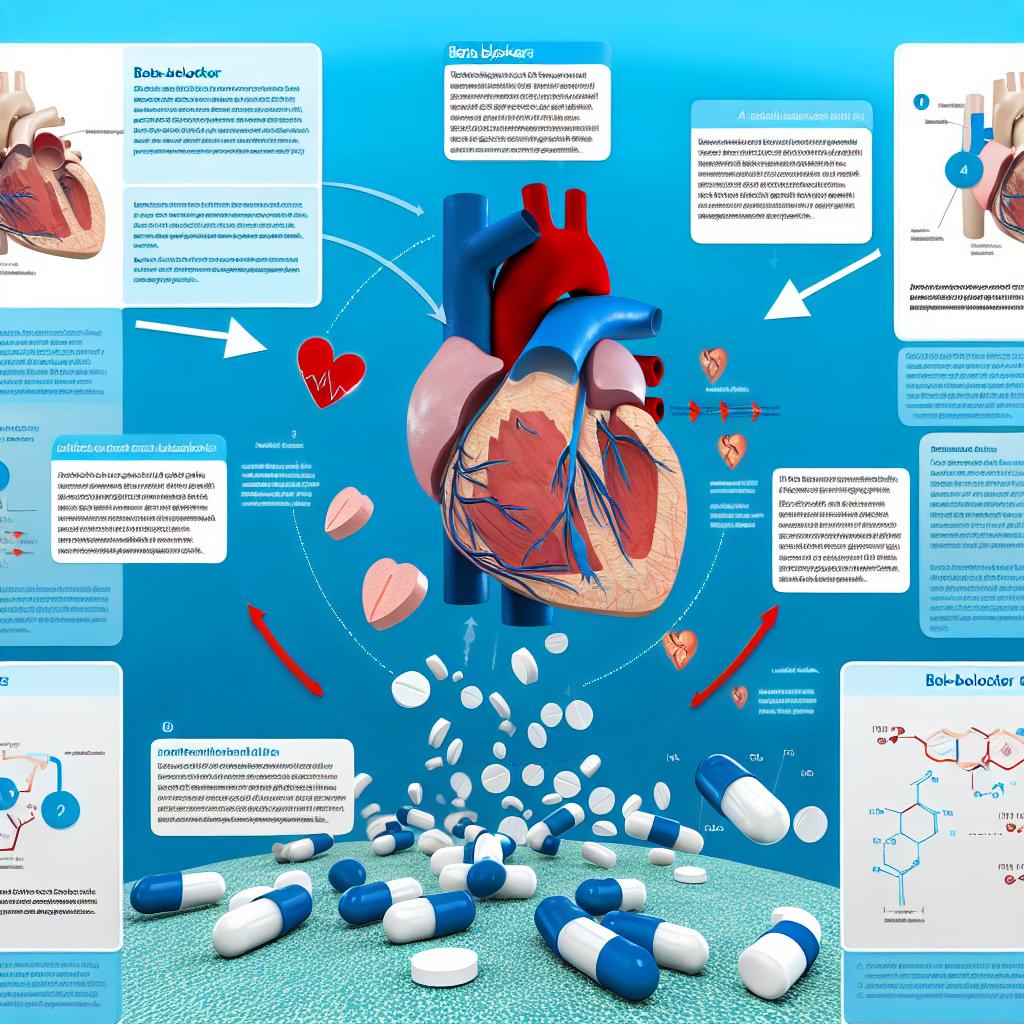
The role of beta-blockers in treating heart conditions.
The Role of Beta-Blockers in Treating Heart Conditions
Beta-blockers, or beta-adrenergic blocking agents, are an integral class of medications in cardiology. These drugs are prescribed extensively for various heart conditions owing to their specific action on the cardiovascular system. Understanding the mechanism, applications, types, and considerations of beta-blockers is crucial for optimizing their benefits and managing potential drawbacks.
Mechanism of Action
The principal mechanism of beta-blockers involves the obstruction of the effects of adrenaline (epinephrine) and norepinephrine on the beta receptors. These receptors, located primarily on the heart and vascular smooth muscle, are an essential component of the sympathetic nervous system. By inhibiting these receptors, beta-blockers serve multiple cardiovascular functions. Primarily, they reduce heart rate and the force of heart contractions. This modulation of cardiac activity results in a reduction in blood pressure and contributes to the prevention of arrhythmias. Overall, they assist in maintaining the electrical stability of the heart by normalizing conduction within cardiac tissues.
Conditions Treated with Beta-Blockers
Beta-blockers have a wide spectrum of applications in treating heart-related conditions, underlining their central role in cardiology:
Hypertension: One of the most common uses of beta-blockers is the management of high blood pressure. By decreasing the heart rate and lessening the force of contraction, these medications mitigate the risks associated with elevated blood pressure, such as stroke and heart attack. Their effectiveness in this area makes them a foundational therapy in the management of hypertension.
Angina: Angina is characterized by chronic chest pain due to insufficient blood flow to the heart. Beta-blockers mitigate this condition by curtailing the heart’s demand for oxygen. Patients with chronic angina can experience significant relief and reduced incidence of angina attacks upon the administration of beta-blockers.
Heart Failure: In the realm of heart failure treatment, particularly in cases involving systolic dysfunction, beta-blockers have proven to extend survival and decrease hospitalizations. They achieve this by diminishing the workload on the heart, improving overall cardiac efficiency and endurance.
Arrhythmias: The control of irregular heartbeats is another critical function of beta-blockers. By slowing down the conduction of electrical impulses within the heart, they foster regular rhythm and timing of heartbeats, which can be life-saving in conditions prone to ventricular or atrial arrhythmias.
Types of Beta-Blockers
There are numerous beta-blockers, each exhibiting unique characteristics and indications. The choice of beta-blocker often depends on the specific condition being treated and patient-specific factors:
Atenolol: This is a selective beta-blocker that primarily targets the heart. It is frequently utilized in the treatment of hypertension and angina, offering safety and efficacy for these conditions.
Metoprolol: Another selective beta-blocker, metoprolol is commonly prescribed for heart failure, angina, and hypertension. It is favored for its ability to reduce mortality in heart failure patients and its availability in immediate and extended-release formulations.
Propranolol: A non-selective beta-blocker, propranolol blocks both beta-1 and beta-2 receptors. Its versatility allows it to be used for an array of conditions, including but not limited to heart conditions, certain types of anxiety, and migraine prevention.
Potential Side Effects and Considerations
Despite their widespread use and benefits, beta-blockers are not devoid of side effects. Common side effects include fatigue, dizziness, and extremities that feel cold. These symptoms emerge from the systemic impact of reduced cardiac output and peripheral blood flow. It is incumbent upon healthcare providers to comprehensively evaluate each patient’s health profile to deem the appropriateness of beta-blockers in their treatment regimen.
When prescribing beta-blockers, potential interactions with other medications warrant consideration. Furthermore, pre-existing conditions such as asthma or diabetes might influence the decision to use beta-blockers, given their capacity to exacerbate bronchospasm or mask symptoms of hypoglycemia.
In summary, while beta-blockers are invaluable in cardiology, they require judicious use, balancing benefits with risks. Patients and healthcare professionals can access further information on beta-blockers through consultation or resources from authoritative organizations such as the Centers for Disease Control and Prevention (CDC) or the American Heart Association (AHA). Such resources can enhance understanding and support informed decision-making regarding the use of beta-blockers in heart disease management.
